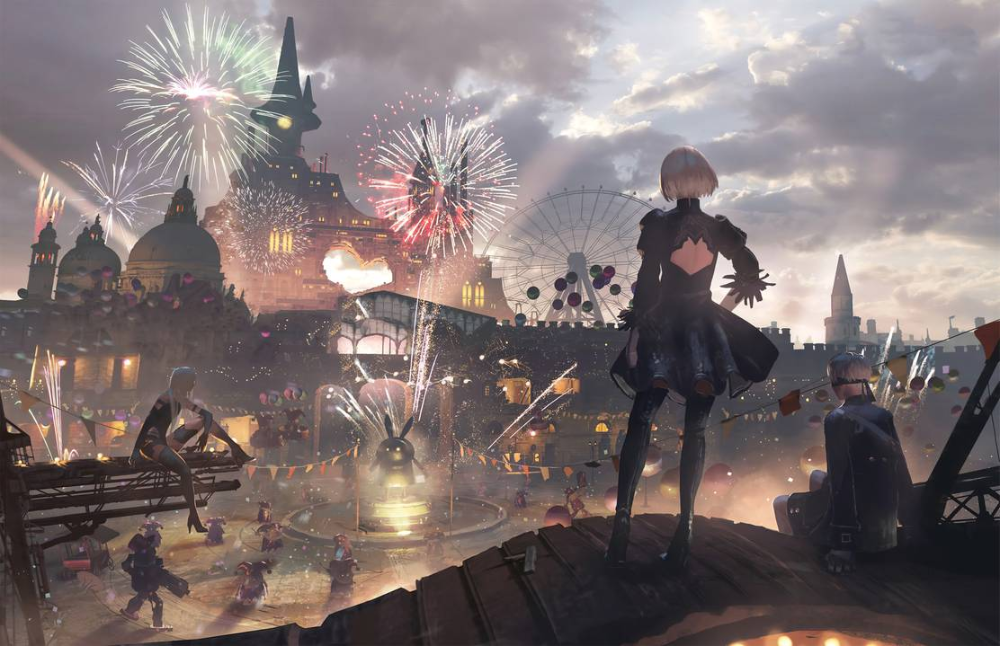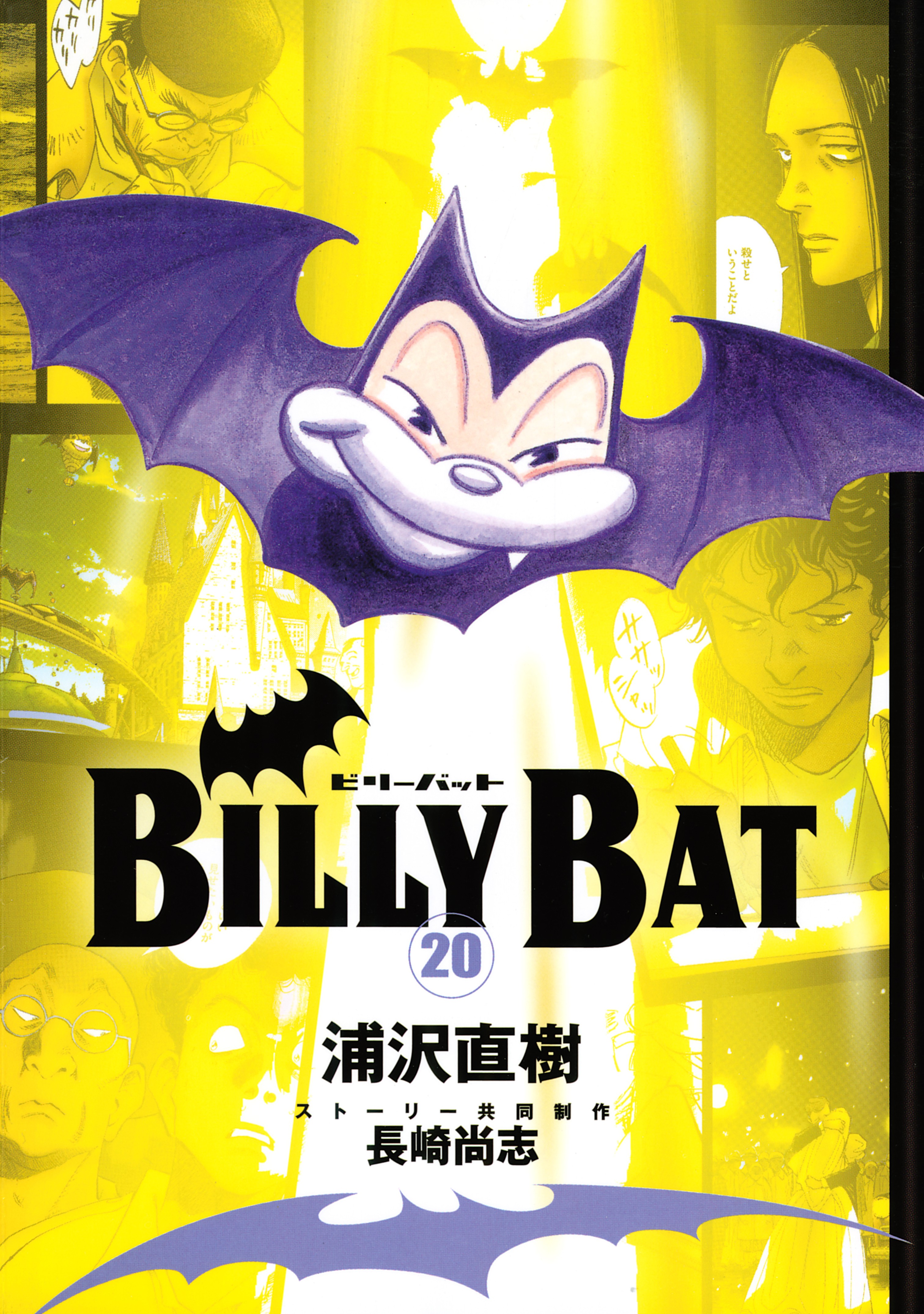Eisuke Hirota
I like entertainment, and a huge part of the reason I'm into math and cs and stuff is due to the fiction material I've ingested. Subsequently, I want to talk about all the fiction material that's impacted my life and my thoughts.
This is because sci-fi brings up many points that ponder how the world will be impacted by new technology. I mean for one, War Games hypothesized how a hacker could breach the military and launch a nuke - this fictional story persuaded the federal government to relook at the, then current, regulations regarding internet protocol.
Continuing on this doomer perspective, today I'm introducing NieR: Automata. FYI, there'll be spoilers. So, if you don't want the adventure to get ruined, here's the tdlr: conscious robots question their existence.

The context follows such: aliens invade the earth but don't want to sacrifice soldiers; and humans don't want to die neither. To maximize damage and minimize deaths, aliens and humans engage in a proxy war, where the aliens have deployed robots and humans have implemented androids. Now, the robots and androids fight indefinitely.
Crucially, robots and androids have been fighting for generations, all for the sake of their creators. That is their purpose. The audience plays the game through the perspective of 2B, 9S, and A2, all androids, and we villainize the robots and aliens. We have faith in the humans who created us, and we believe eden awaits our victory in this war.
"Essence before existence." This stance is what the androids believe in. The androids believe that there is a predetermined reason for their existence, akin to how tools are created for a specific task. The objective to cut a tree down existed first, next came the axe. The aliens started invading Earth, next came the androids.
Throughout the game, however, the audience and androids start to uncover various truths that question their faith. We fight for the humans and against the aliens, but we never actually meet our or our enemies' creators. Later on, it's revealed that the humans and aliens have been wiped extinct - both the robots and androids' creators are dead. Why are we fighting for the humans now?
"The robots killed the humans - we must bring justice to our enemies and kill all the robots!" In all fiction, this is traditionally what happens next. Unfortunately, the game presents a few more twists here too.
We first meet the robot Pascal and his pacifist tribe, full of robot families and dog robots that all just like to enjoy their home in the forest. They have no intention of harming anyone and they prove it - they have disposed of their weapons and only carry books, toys, and money.
We also start to find robots in the world imitating higher life, particulary our creators' (human) lives. Some enjoy decorating their armored body with makeup and going to the amusement park. Others like to gamble and watch gladiator fights. And many, if not all, legitimately start frolicking in public. No shame against public sex in robot society I guess.

Lastly, if that was not enough to persuade androids to stop harming robots, we uncover the truth that robots and androids are both built upon the same vital core. In other words, by killing a robot, you are essentially killing an android.
You realize that your creator is dead, so no eden. And your moral compass dissuades you from killing children and pacifists. Now, How do you Live?™
NieR presents the audience with an existential question through the lenses of these androids' lives. Funnily, like a little easter egg, various robots are named after existentialists and philosophers, Jean-Paul (Sartre) and Simone (de Beauvoir), and Pascal criticises Nietzsche's famous words, "God is dead."
This game is trully amazing, and there exists great analyses that explain NieR's profound message; I really enjoyed this video by Max Derrat.
But today, I'd like to mainly emphasize the importance of how singularity is presented in this game. Clearly, the robots and androids have reached conscious AGI, and have some sense of consciousness, emotion, spiritualism, the list goes on. While I'd guess that many people would love to create such robots, I think NieR presents a world where we shouldn't. Perhaps the people interested in conscious AGI should ask themselves deep down: Why do I want robots to have a consciousness? Will a consciousness truly help human society, whether through a second industrial revolution or through aiding the elderly and disabled? Or is this search for a robot consciousness solely a matter of power hungry individuals wanting to claim some sense of victory, and agency, over their cruel, little life?
By the end of the game, 2B, 9S, and A2 all have an unsightly ending - that is if you got ending C or D, and not ending E. Ending E presents a hopeful future, one where robots and androids can keep living with or without faith. To preface, I do not believe in a supernatural god, but I base some of my values on various religions like Buddhism and Shintoism (probably influenced from my Japanese ethnic origins). As such, I believe that ending E shows how humanity can continue living with hope towards the future. Similarly, other conscious beings (perhaps robots and androids) can also continue a tangential path.
That being said, I personally don't like Superior Iron Man - I don't think humans should be playing god. I think, philosophically speaking, there exists no morally acceptable reason to create conscious AGI. I'm heavily biased, however, given my second belief that I (to some extent) believe that having children is unethical. If God does exist though, then clearly he/she/it gave humans the capability to recreate, hence, reproduction is ethical by matter of "essence before existence." Other reasons exist too that argue for birthing children, though that's a topic for another day.
When it comes to birthing consciousness within robots and androids, what takes higher priority is perhaps the existential threat of human life. As another higher life is born with consciousness possibly superior to ours, what prevents them from wiping us out? This mindset is pretty doomer, but truthfully I don't think there's any true way to stop this without fully preventing it from ever happening. If we fly to close to the sun thinking that we're god, we'll realize our false wings have melted, plunging us down into the depths of the ocean, never to be seen again.
This does not mean that robots need not exist - Dario Amodei's blog explains great reason for us to continue without the need to play god. Robots are superior machines, I believe, not human equals. This is something a lot of people that ingest sci-fi probably must engrain into their minds, especially children who fantasize robots and other death machines. I'm pretty glad to have experienced NieR - it definitely made me question my stance on AGI and my naivete surrounding robots.
I'm planning to continue this series and talk about other pieces that made me interested in robots. Given my recent completion of Naoki Urasawa's Billy Bat, next time I'll talk about his other series - Pluto. Today's thoughts were pretty dark, and also heaily connected to philosophy and my research. Instead, I want to also highlight great fiction pieces that depict cool robots and increase the fanbase to the fiction I ingest. Ironically, Pluto is also dark, philosophical, and related to my research, so I think me solely nerding over robots without relating to human existence will happen another time.
